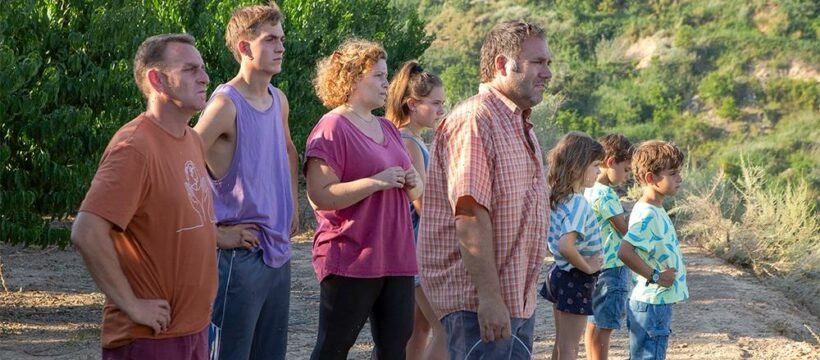In February, Carla Simon’s “Alcarràs” walked off with Spain’s first Berlin Golden Bear in nearly 40 years as Spain notched up its biggest main competition presence at the Berlinale since 1997.
This May, Spain has four movies selected for Cannes – Albert Serra’s Competition entry “Pacifiction”; Rodrigo Sorogoyen’s “The Beasts,” in Premiere; Elena López Riera’s Directors’ Fortnight bow “The Water”; and José Luis López Linares’ “Goya, Carrière and the Ghost of Buñuel,” a Cannes Classics doc feature. That reps a Cannes presence roughly on par with recent standout years such as 2018 and 2019.
With Netflix launching “Through My Window” in February, three of the streaming giant’s five most-watched non-English language movies are from Spain.
The big money is now in TV. Meanwhile Spanish cinema, a darling of arthouse crowds during Spain’s 1975-1982 transition to democracy, is once more back on the international radar, though faced by huge challenges led by a possibly lasting plunge in cinema admissions.
Several factors are in play. Led by Simón, a new generation of (often women) filmmakers in Catalonia and beyond are making movies often intimately grounded in the filmmakers’ immediate realities, breathing authenticity but spangled by knowing psychological detail.
“A crop of new talent is exploring another form of filmmaking and being highly creative and very touching,” says Latido Films head Antonio Saura, citing “Alcarrás” and the Latido-sold “Lullaby,” from Alauda Ruiz de Azuá, a finely observed mother-daughter relationship drama set on the Basque Coast.
Other countries want to do business in Spain, as well. Directed by Valencia’s López Riera, “The Water,” a critique of rural gender violence mixing local village detail and fantasy, is produced by Valencia’s Suicafilms, Switzerland’s Alina Film and France’s Les Films du Worso.
“There’s a lot of women directors in Spain, some highly talented. There’s the sense of a movement – maybe that’s too strong a word – but it can be used to position a film,” says Luis Renart at Bendita Films, which has picked up on-the-rise Catalan director Nely Reguera’s “The Volunteer,” a Málaga Spanish Screenings hit in March.
In parallel, another generation – which broke through a decade or more before Simón – is powering up Spain’s reputation for smart thrillers, which can score big festival berths by mixing genre with social allegory (“The Platform”), offering a critique of violence (“May God Save Us,” “The Beasts,” “Manticora”), or tackling the obstacles to historical change (“Prison 1977”) or the waywardness of human nature (“From The Shadows”).
Thrillers most certainly can sell to platforms, Saura notes. That potential market, plus gender and LGBT issues raised by the films, may explain the interest from buyers at Malaga Festival’s Spanish Screenings in Latido’s “Unfinished Business,” a Cadiz-set crime drama and vision of male violence, and Filmax’s “Can’t Live Without You,” an erotically charged love triangle thriller.
The top title at new Spanish sales outfit Wild Duck Productions is “Last Wills,” starring Fernando Tejero (“No Hay Quien Viva”). The film is a father-son reconciliation drama with an action thriller drive, said sales chief Liliana Bravo.
Surviving theatrical distributors are currently “only buying very commercial titles. They need cash-flow,” confirms Feel Content co-CEO Geraldine Gonard.
These days, platforms are looking for high-quality drama thrillers of substance, and quality teen and YA movies, she adds.
“Distributors are buying ever more commercial titles,” says Film Factory Entertainment founder Vicente Canales. “Art-house buyers are becoming ever more selective.”
Meanwhile, VOD is opening up new opportunities.
“One of our strongest movies this year is Cesc Gay’s ‘Stories Not to Be Told,’” notes Ivan Díaz, head of Filmax International. “Years ago, when selling a Cesc Gay film, we’d think it was going to theatrical in each territory. That situation remains in some territories, Europe for instance. But in other parts of the world, we might well go with a platform.”
In Europe, the core market for Spanish films, the number of SVOD services almost doubled between the end of 2020 and end of 2021, the European Audiovisual Observatory estimates.
“Thanks to a new platform scene, some markets are now coming back to the table,” notes Díaz, citing Italy. “New [Italian] VOD players have emerged, meaning buyers have larger options to sell onto TV, which makes them more confident when buying.”
Sales companies are selling to platforms by territory or region.
“Aggregating less money per sale can still add up in the end to what you sold before. The difference is that it used to take me six months to sell a film, now it’s nearly two years,” says Gloria Bretones at Begin Again Films, which largely sells Spanish art pic fest favorites.
The big question, and not only for Spain, is the rebound of the theatrical market.
In the first quarter of 2022, compared to same period in 2019, box office underperformed in the U.K. by 19%, and fared even worse in Spain (-36%), France (-38%), Germany (-50%) and Italy (-61%), according to the 2022 Marché du Film Focus report, just published at Cannes.
“Platform sales don’t compensate for the loss of theatrical business,” says Feel Content CEO Geraldine Gonard. “A theatrical sale enhances a title’s value. In France, for example, if you make a theatrical deal, a film is classified as a feature; if not, it’s a TV movie.”
“Cannes will be the first big in-person market with any similarity to pre-pandemic meets,” says Canales. “It will at least throw some light on the residual strength of theatrical. The international business isn’t just sales to platforms,” he says.
Source: Read Full Article
